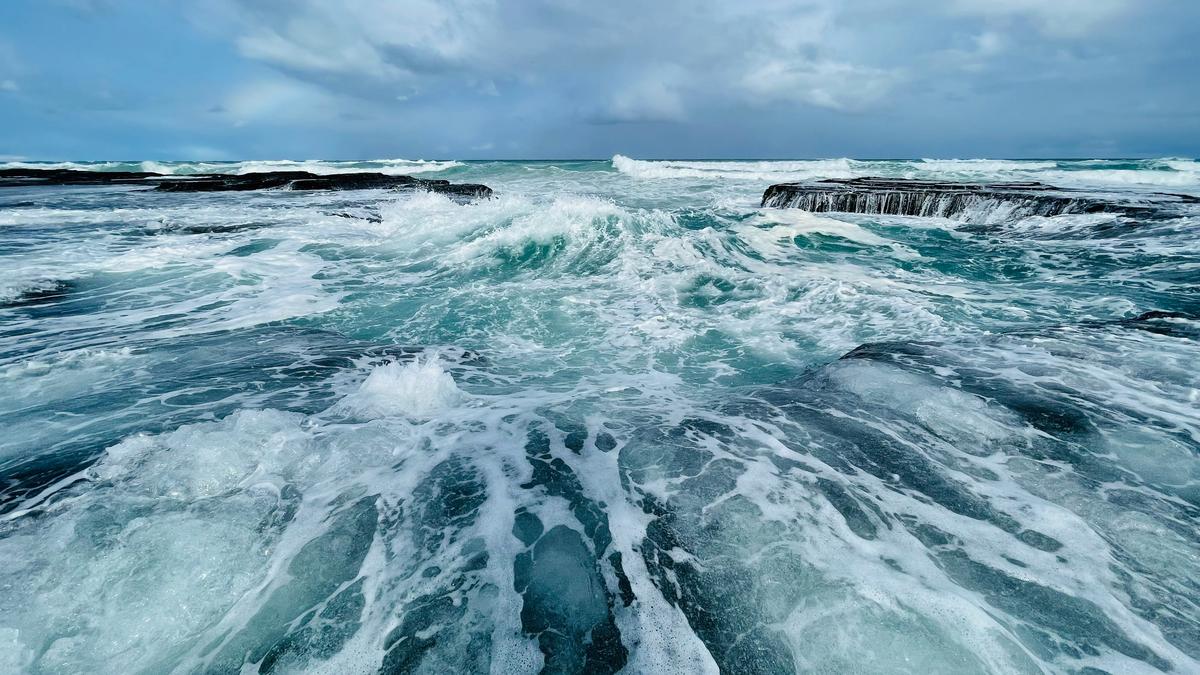
Understand the Indian Ocean and you’ll understand much about earth
The Hindu
The Indian Ocean is critical today to understand the earth’s overall ocean response to increasing greenhouse gases and global warming.
On World Oceans Day (May 8), we can take in the wonders of the smallest of the three major oceans right in our front yard. The Indian Ocean has been getting a lot of attention recently for its rapid warming and the outsized influence it continues to have on its peers.
As it happens, the Indian Ocean is critical today to understand the earth’s overall ocean response to increasing greenhouse gases and global warming.
The Indian Ocean is famous for its dramatic monsoon winds and the bountiful rain it brings on the Indian subcontinent. The winds and the rain have evoked prose and poetry for millennia. More than a billion people depend on the moisture it supplies to quench their thirst, to replenish fisheries, and to produce food and energy.
The warm summer months are characterised by the rapid warming of the Arabian Sea and the Bay of Bengal as well as the southern tropical Indian Ocean. The winds begin to turn around from a land-to-ocean direction during winter to an ocean-to-land direction as summer commences.
The scorching heat on the subcontinent also comes with the threat of pre-monsoon cyclones. The North Indian Ocean doesn’t generate as many cyclones as the Pacific or the Atlantic Oceans, but the numbers and their rapid intensification have been growing ominously. The relatively small North Indian Ocean ensures cyclones don’t grow into the sort of hot powerhouses hurricanes and typhoons can be. But also the developing countries along the rim of South Asia, East Africa, and West Asia are sitting ducks in their path. Thus, cyclones tend to be the deadliest storms by mortality.
The warm ocean supports fisheries, big and small, and fish such as anchovies, mackerel, sardines, and tuna. Dolphins are a tourist attraction; some whales have also been sighted in the Arabian Sea. Tourists also flock to popular beaches and the corals from Lakshadweep to the Andaman-Nicobar Islands, all the way down to Reunion Island off Madagascar.
The northern boundary of the Indian Ocean is closed off by the Asian landmass, minus tiny connections to the Persian Gulf and the Red Sea.

The girl, who was admitted to Aster CMI Hospital with alarming breathlessness and significant pallor, was diagnosed with Wegener’s Granulomatosis (now known as Granulomatosis with Polyangiitis or GPA), a rare autoimmune condition that causes spontaneous bleeding in the lungs, leading to acute respiratory failure.

ACB files case against IPS officer N. Sanjay in Andhra Pradesh. The official is accused of manipulating the tender processes for awarding contract for development and maintenance of AGNI-NOC portal, and conducting awareness meetings for SC/STs. It is alleged that the total value of properties stolen, or involved in the case is estimated at ₹1,75,86,600.









